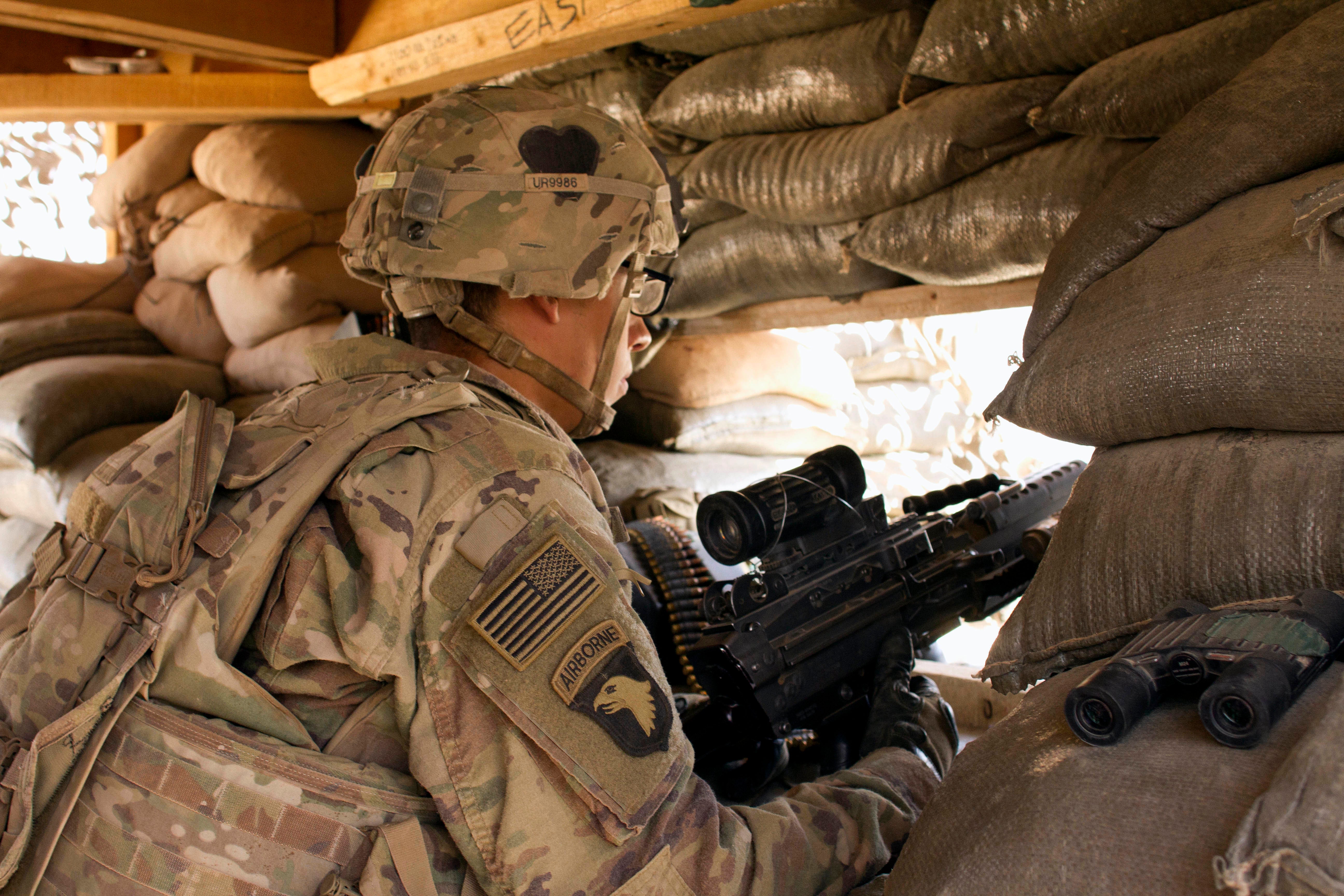Iraqi PM grapples with militia threat as talks with US start
A new round of strategic talks between the U.S. and Iraq is taking place virtually because of the coronavirus pandemic

Your support helps us to tell the story
From reproductive rights to climate change to Big Tech, The Independent is on the ground when the story is developing. Whether it's investigating the financials of Elon Musk's pro-Trump PAC or producing our latest documentary, 'The A Word', which shines a light on the American women fighting for reproductive rights, we know how important it is to parse out the facts from the messaging.
At such a critical moment in US history, we need reporters on the ground. Your donation allows us to keep sending journalists to speak to both sides of the story.
The Independent is trusted by Americans across the entire political spectrum. And unlike many other quality news outlets, we choose not to lock Americans out of our reporting and analysis with paywalls. We believe quality journalism should be available to everyone, paid for by those who can afford it.
Your support makes all the difference.Iraq’s prime minister asked Iran s leaders to rein in Iran-backed militias in Iraq and in a strongly worded message to Tehran suggested he would confront the factions, two Iraqi officials said Wednesday.
Mustafa al-Kadhimi's statement came as the fourth round of strategic talks with Washington got under way, the first under President Joe Biden The talks — held virtually because of the pandemic — began in June and are expected to center on an array of issues, including the presence of remaining U.S. combat forces in Iraq and Iran-backed groups acting outside of state authority.
Iraq had requested the latest round, partly in response to pressure from Shiite political factions and militias loyal to Iran that have lobbied for the remaining U.S. troops to leave Iraq. Participants include U.S. Secretary of State Anthony Blinken and Under Secretary of State for Political Affairs David Hale.
Al-Kadhimi has walked a tightrope as he negotiates with the Americans while coming under growing pressure from local militias loyal to Tehran.
Last week, a convoy of heavily armed Shiite militiamen drove openly through central Baghdad denouncing the U.S. presence and threatening to cut off al-Kadhimi’s ear, a display that clearly sought to undermine the premier.
Pressure has also come from cash-strapped Tehran as it seeks billions of dollars in payment for crucial gas and electricity supplies. Iraqi officials say the money is sitting idle in an account at the Trade Bank of Iraq because of U.S. restrictions and fears of sanctions.
In response to the ominous military-type parade by the militias, Kadhimi sent a strongly worded letter to Tehran, demanding Iran use its influence to halt these groups, two Iraqi officials said.
In the note, al-Kadhimi threatened to “announce clearly who backs these groups” and said he was willing to confront them, the officials said.
It was not immediately clear who the message was given to. The timing suggested al-Kadhimi, who has appeared powerless in confronting the militias, was looking to appease the Americans ahead of Wednesdays talks.
The message led to a two-day visit this week by the Iranian Revolutionary Guard's Quds Force chief Ismail Qaani to Baghdad, where he met with militia and Shiite political leaders and called for calm, according to a senior Iraqi Shiite politician.
The two Iraqi officials and the Shiite politician all spoke on condition of anonymity because they were not authorized to talk to reporters.
U.S.-Iraq ties plummeted after a Washington-directed airstrike that killed Iranian Quds Force commander Gen. Qassem Soleimani in Baghdad last year. At the time, outraged Shiite lawmakers passed a non-binding resolution to end U.S. troop presence in the country.
Iraqi and U.S. officials have said they support a scheduled withdrawal of forces from Iraq, but questions remain over time-frames and the scope of the threat posed by the Islamic State group.
A group of Shiite militias on Wednesday issued a statement demanding that a scheduled withdrawal be set during the Iraq-U.S. talks.
A U.S. official last month said that the U.S. intended to use the meetings with Iraq to clarify that coalition forces remain in the country “at the invitation of the Iraqi government and solely for the purpose of training and advising Iraqi forces” and to ensure against an IS comeback.